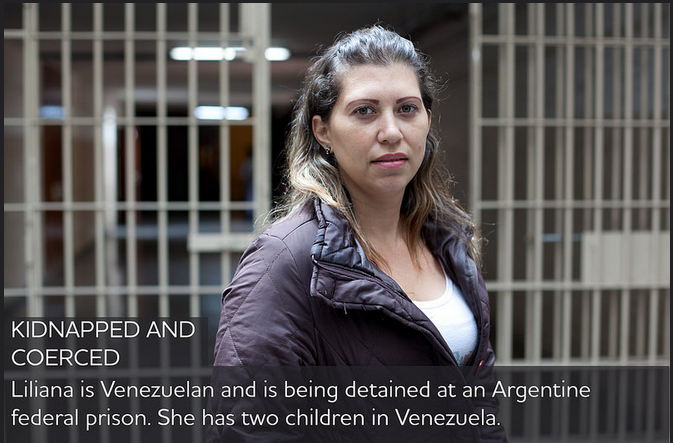Many women who end up transporting drugs are co-opted by networks that use similar methods to those employed in human trafficking crimes. That is what happened to Liliana, a Venezuelan woman with two children who agreed to transport drugs under the threat that her family would be harmed if she refused. She is incarcerated at an Argentine federal prison and her children remain in Venezuela.
This photo essay is part of a project on women’s increasing incarceration for drug offenses in the Americas, which seeks to halt this trend through advocacy and research initiatives carried out by a working group made up of civil society organizations, government officials and academics. It was also published in the context of an editorial partnership between openDemocracy and CELS on the Human Cost of Global Drug Policy that coincided with the United Nations General Assembly Special Session (UNGASS).


